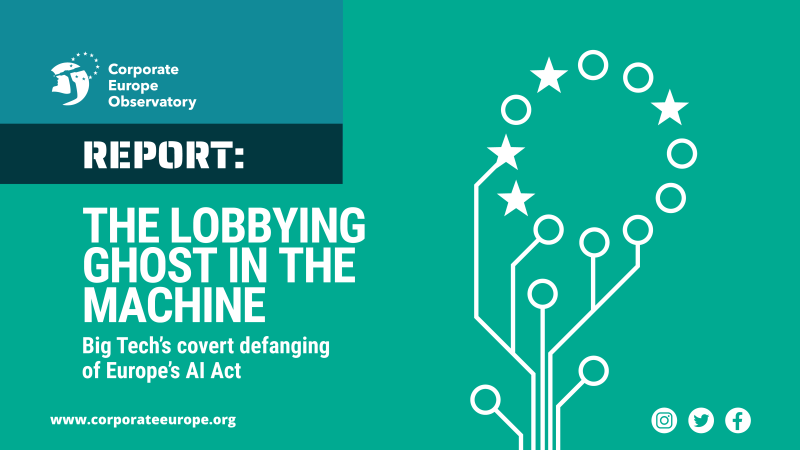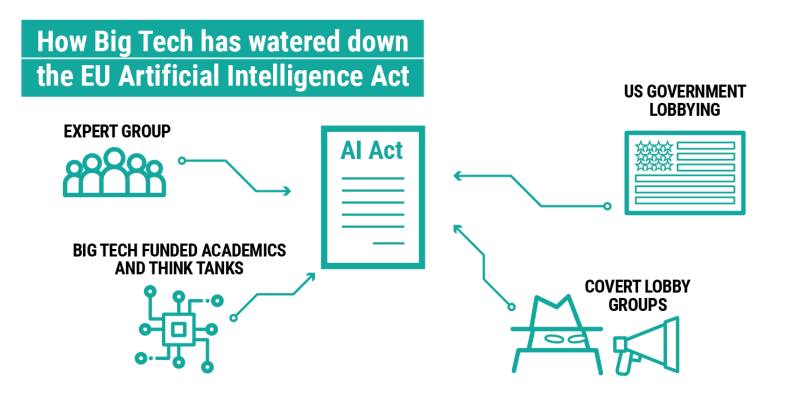Stay always informed
Interested in our articles? Get the latest information and analysis straight to your email. Sign up for our newsletter.

Documents obtained by Corporate Europe Observatory reveal how the EU’s pioneering attempt to regulate artificial intelligence has faced intense lobbying from US tech companies. Via years of direct pressure, covert groups, tech-funded experts – and a last-ditch push by the US Government – tech companies have reduced safety obligations, sidelined human rights and anti-discrimination concerns, and secured regulatory carve-outs for some of their key AI products. Will some of the remaining fundamental rights protections be further watered down during the final trilogue negotiations?
In April 2021 EU Commissioners Margarethe Vestager and Thierry Breton presented a proposal for a European legal framework on Artificial Intelligence, or AI. It was celebrated as the first global attempt to establish a regulatory scheme for AI – a technology that, as the Commission observed, would “have an enormous impact on the way people live and work in the coming decades”.
However, AI is increasingly central to the business models of large tech companies such as Google, Microsoft, and Meta (formerly Facebook). Google, in private meetings with the Commission, described itself as an “AI first company” with “AI driving all their products.” And so, unsurprisingly, the European Union’s push to regulate has faced intense corporate lobbying attempts at every stage of the policy-making process.
Corporate Europe Observatory has previously highlighted Big Tech’s lobbying in the EU. Previous research has also shown how Big Tech engaged the European Commission during the initial drafting of the AI Act, lobbying for self-assessments of high-risk AI systems and exerting influence through a high-level expert group dominated by industry representatives.

The spectre of the inclusion of general purpose in the AI Act led to a fierce Big Tech lobbying offensive. General purpose AI, such as ChatGPT and Dall-E, can be used for a wide variety of uses. Because of the scale and amounts of memory, data and hardware required, general purpose AI systems are primarily developed by American tech giants such as Google and Microsoft.
As it stands, the lobby blitz generated the desired results. In their latest positions both the Parliament and the Council have postponed the discussion on regulating general purpose AI. Institutions also narrowed the definition of AI systems, limiting the number of systems to which scrutiny would be applied.
The AI Act is now nearing its final stages, which are the secretive trilogue negotiations, which tend to benefit well-connected and well-funded lobbyists. As the Council, Parliament, and Commission, set out to reach agreements on EU policy proposals, the stakes for this world-first attempt to regulate AI remain high.
Let’s not permit Big Tech to kill the AI Act in the dark. Sign the petition launched by LobbyControl and CEO on trilogue transparency here.
Read the full report here.
Find all the documents requested through access of documents here.